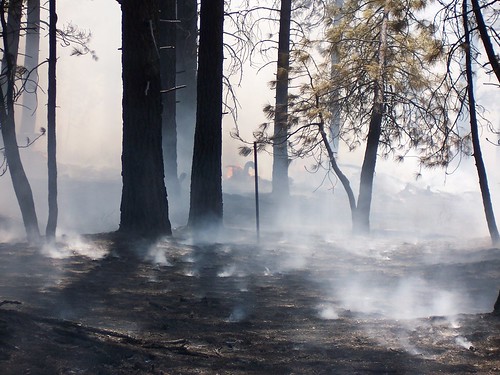
There’s hot debate over whether or not to conduct prescribed burning and mechanical thinning (the manual removal of trees) in our nation’s forests. Supporters of these fuels reduction methods, which remove highly flammable undergrowth, argue that they help lower the severity of wildfires. Meanwhile, opponents say that the treatments can hurt the environment.
New research by scientists from the U.S. Forest Service Pacific Southwest Research Station and six universities in the U.S. and Australia has shown that prescribed burning and mechanical thinning can be conducted with few negative consequences. The scientists looked at a broad range of ecological indicators, such as animal and bird diversity and soil chemical composition, which helped to detail the effects of these treatments on vegetation, soils, wildlife, bark beetles and carbon sequestration (trees’ ability to capture carbon dioxide).

They found that prescribed burning and mechanical thinning had little or no effect on a forest’s vegetation, soils, wildlife, bark beetles and carbon sequestration. In fact, these treatments increased the overall diversity of vegetation and improved tree health, making the trees more resilient to bark beetle attacks. Wildlife appeared unaffected or adapted quickly to the treated areas—some birds and small mammals that prefer shady, dense habitat moved away, while others that prefer more open environments thrived.
Some communities, particularly in the western U.S., are opposed to prescribed burning because they are concerned about cost and environmental impacts. As a result, other methods to reduce the potential of wildfires, such as tree removal, have become attractive, especially if forest managers can retain tree stand health. But, in reality, a combination of both prescribed burning and thinning is needed to reduce the severity of wildfires in many forests, according to co-author Dr. Chris Fettig, a research entomologist at the USDA Forest Service’s Pacific Southwest Research Station.
